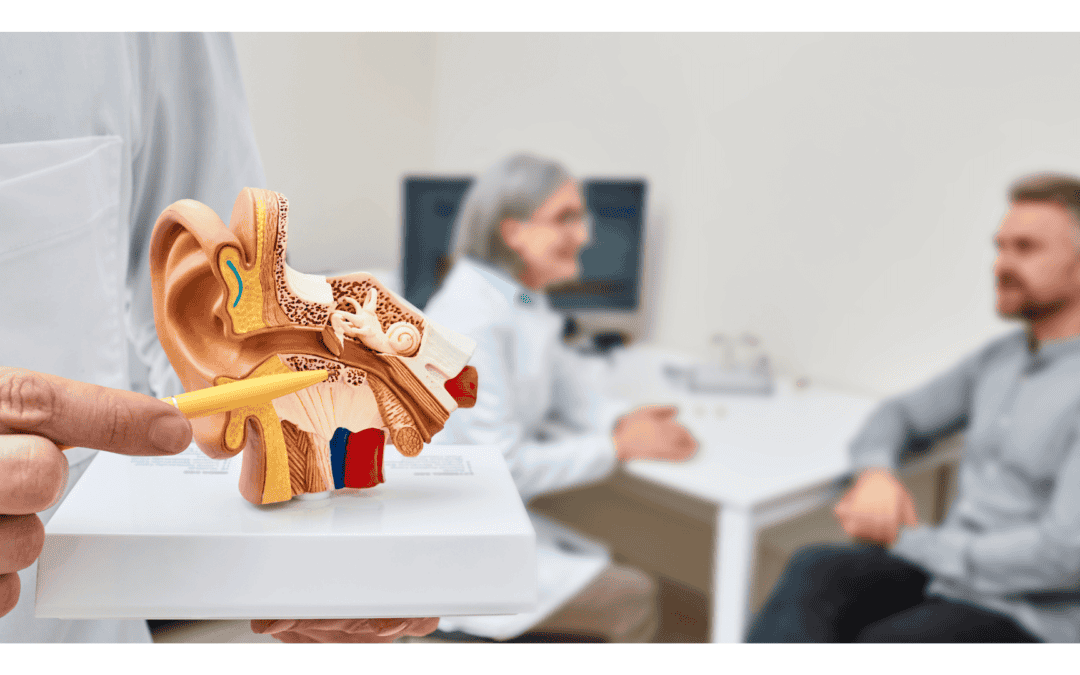Hearing loss affects millions of people globally, making it one of the most prevalent health issues in modern society. It can develop at any age and stem from various causes, impacting daily communication, interactions with loved ones, and quality of life.
Learning more about the common causes of hearing loss can help you prevent hearing loss, or see early treatment to manage any changes in hearing.
Aging: The Unavoidable Culprit
Age-related hearing loss, or presbycusis, is arguably the most common cause of hearing loss. As individuals age, changes in the structure of the inner ear can occur naturally, diminishing the ability to hear higher frequencies. While it’s a natural part of aging, the severity of age-related hearing loss can vary significantly between individuals. It’s influenced by genetics, lifestyle, and exposure to noise over a lifetime.
Age-related hearing loss can be successfully treated with hearing aids. In fact, treating age-related hearing loss can slow further hearing loss, and help you maintain your overall hearing health.
Noisy Environments: The Modern Age Menace
In our industrialized world, exposure to excessive noise is a significant contributor to hearing loss. This can range from prolonged exposure to high decibels in work environments—like factories, construction sites, and nightlife venues—to everyday sounds such as heavy city traffic or loud music.
Noise-induced hearing loss (NIHL) can be sudden or gradual, depending on the intensity and duration of noise exposure. Noise-induced hearing loss is also permanent, making prevention very important.
Hearing aids are a successful treatment option for NIHL.
Ototoxic Medications: The Double-Edged Sword
Certain medications are known to be ototoxic, meaning they can damage the inner ear and result in hearing loss. These include specific antibiotics, chemotherapy drugs, nonsteroidal anti-inflammatory drugs, and even some diuretics. The degree of hearing loss can vary, and in some cases, it may be reversible once medication use is discontinued.
Treatment options include medication management, assistive listening devices, and hearing aids.
Infections: The Stealthy Invaders
Ear infections can cause temporary or permanent hearing loss, particularly if they are recurrent or they’re not properly treated. Infections such as meningitis, measles, and mumps pose a higher risk, especially if they reach the inner ear where they can cause damage to the cochlea or auditory nerve.
Depending on the type of damage and the severity of the hearing loss, treatment options include medication, hearing aids, or cochlear implants.
Genetic Factors: Inherited Hearing Loss
Genetic predisposition plays a role in congenital hearing loss. Some babies are born with hearing impairments due to genetic anomalies. These genetic factors can also make some individuals more susceptible to hearing loss later in life, even if they are not born with the condition.
Treatment options can include surgery, hearing aids, or cochlear implants.
Trauma: The Sudden Impact
Physical injury to the ear or head can lead to temporary or permanent hearing loss. Traumatic injuries might affect the ear’s delicate structures, such as the eardrum or the bones in the middle ear. Severe head injuries might impact the brain areas responsible for processing sound, compounding the problem.
There are a range of treatment options available, depending on the type of injury and type of hearing loss.
Lifestyle Choices: The Controllable Factor
Lifestyle choices can also influence hearing health. Smokers, for instance, are at higher risk for hearing loss compared to non-smokers. Similarly, poor dietary habits that contribute to conditions like high blood pressure and diabetes can indirectly affect hearing by impacting the blood supply to the inner ear.
Making a few lifestyle changes can reduce your risk of hearing loss.
Prevention and Management
Understanding these common causes of hearing loss can help you make smart decisions about prevention and management. For example, protecting your ears with appropriate ear protection, monitoring the side effects of medications, and maintaining a healthy lifestyle can mitigate the risk of hearing loss.
Regular hearing checks can help detect early signs of hearing loss, allowing for timely intervention with hearing aids or other assistive devices if necessary.
Visit Us For a Hearing Test
Hearing is a sense that connects individuals to their environments and communities. Recognizing the common causes of hearing loss is the first step in reducing the risk of hearing loss. Ready to find out more about your hearing health? Visit us for a hearing test.

